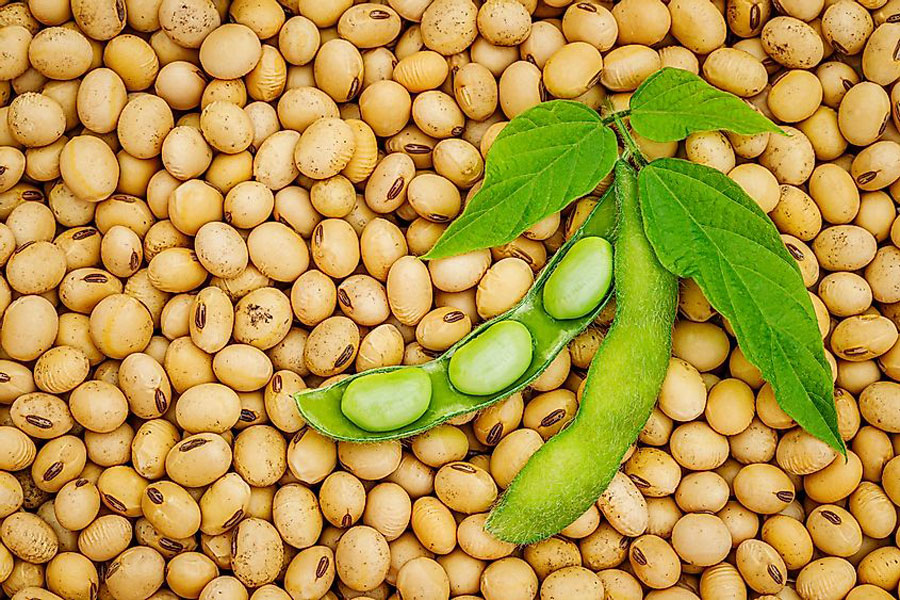In fact, the soy bean contains the highest levels of protein and fat within the family of edible legumes.
With the U. S. Food & Drug Administration proving its potential to reduce coronary heart disease in 1999, the soy bean gradually rose in popularity.
Since it is of plant origin, it contains no cholesterol, is 95% digestible, and is low in saturated fat, which is directly related to many non-infectious diseases and old age sarcopenia.
Soy beans are also the only vegetable food that contains all essential amino acids and fiber, iron, calcium, zinc, and B vitamins. Due to all these traits, Soy protein has received increased attention in recent years amongst consumers, researchers, and the media.
Soy protein is generally comparable to other common protein sources such as whey proteins.
According to research, ingesting supplements with whey, soy, or whey-soy blended protein for six months maintained lean muscle mass and physical performance in older adults with low lean mass.
Epidemiological studies have also proven the potential benefits imparted by soy protein in reducing the risk for a number of chronic diseases.
These physiological functions have been attributed to soy proteins either as intact soy protein or more commonly as functional or bioactive peptides derived from soybean processing.
Digestion of soy proteins within the body
In its simplest form, soy bioactive peptides are released upon the ingestion and digestion of soybeans by the acid and digestive enzymes released from the stomach, small intestine, and pancreas.
These bioactive peptides are inactive when they are part of the plant proteins, but become activated with enzymatic processing, gastrointestinal digestion, food processing, or fermentation.
These small peptides are thereafter absorbed to the body where their impact is great.
Lowering Cholesterol
The best studied bioactivity of soy peptides is their lipid lowering property.
Many soy peptides have been identified to lower cholesterol and triglycerides and suppress fat synthesis and storage.
Research conducted worldwide has revealed that it acts as a competitive inhibitor of the major rate-limiting enzyme in cholesterol biosynthesis within the body.
This soy peptide increases LDL uptake by liver cells, thereby reducing the blood LDL cholesterol levels.
Protection against Diabetes
Obesity and hyperlipidemia are often associated with insulin resistance and type II diabetes leading to the metabolic disease phenotype.
Interestingly, many soy peptides with hypolipidemic function also possess anti-diabetic activity in many research-level experimental models.
For example, the cholesterol lowering quality of soy peptides also improved glucose metabolism by increasing glucose uptake into the cells from the blood which help to control the blood glucose level of a person.
Both soy protein and isoflavones have been linked with lowered serum glucose levels, increased insulin secretion, and reduced fasting plasma glucose.
However, fermented soybean products containing soy peptides may be even better in the prevention of the onset of type II diabetes in humans.
Consumption of a diet containing soy protein 35% animal protein, 35% soy protein, and 30% other plant proteins for six weeks by women aged 18–40 years at week 24–28 of pregnancy with gestational diabetes mellitus was associated with significant improvements in fasting plasma glucose, serum insulin levels, insulin resistance, and quantitative insulin sensitivity check index compared with the control diet group consisting of 70% animal and 30% plant proteins.
Regulating high blood pressure
High blood pressure or hypertension is a major risk factor for coronary heart disease.
Interestingly, antihypertensive peptides are the most commonly occurring and best studied bioactive peptides in foods.
Research suggests that an increased intake of soybean protein may play an important role in preventing and treating hypertension.
Many Asian soybean foods are rich with these proteins.
Lowering the risk of cancer
Many soy peptides have also been identified in different experimental systems to have anti-cancer properties.
Further studies have shown that most of the anti-cancer soy peptides belong to the lunasin and BBI categories, and have been shown to be effective suppressors of carcinogenesis.
It has also demonstrated anti-carcinogenicity in different species including humans in their colon, liver, esophagus, breast, and prostrate.
Antioxidant and anti-Inflammatory properties
Carcinogenesis and cancer development depend in part on pro-inflammatory, pro-oxidant, and immunosuppressive mechanisms that lead to the abnormal growth of tissue.
Consequently, proteins and peptides with anti-cancer properties often also exhibit anti-inflammatory and antioxidant effects.
Soy protein reduces oxidative stress and anti-inflammatory properties in humans with end-stage renal disease, and healthy women over 70 years of age.
In summary, Soy protein products offer multi-fold benefits to those across all ages and lifestyles.
They improve diet and cardiovascular status, prevent certain types of cancer, improves overall health, reduces or prevent obesity, and offer a wider number of healthier options when it comes to food diversity.
[The writer is Prof Shirani Ranasinghe, Senior Prof. in Biochemistry, Department of Biochemistry at the Faculty of Medicine - University of Peradeniya.]


